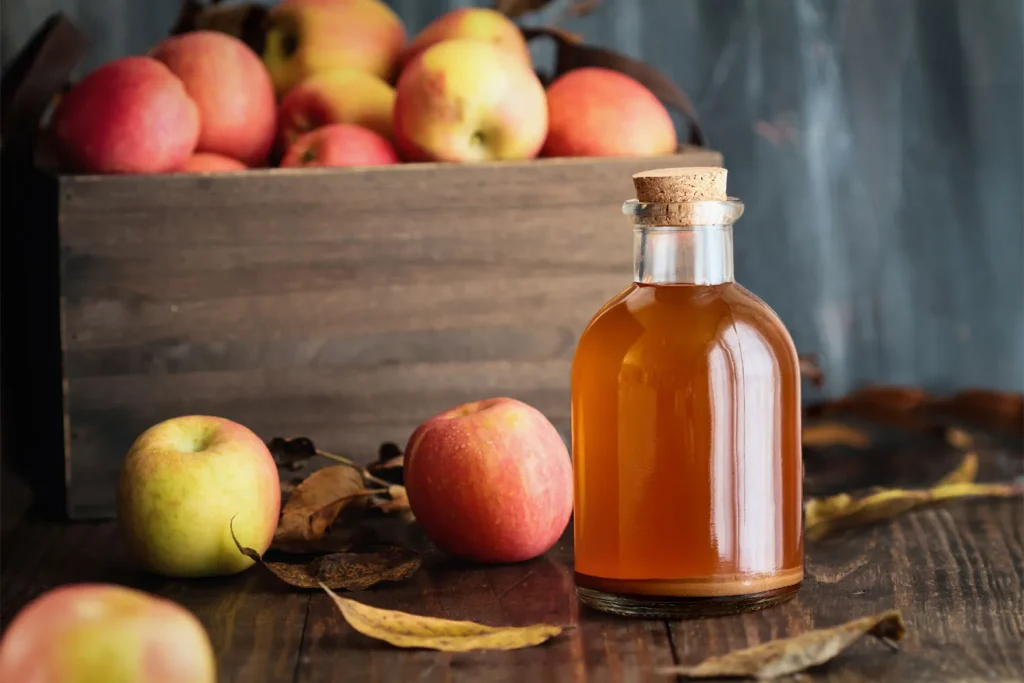Easy, cheap and more effective than most probiotics: A simple apple a day can do wonders for your gut health.
From our mood to the health of our skin, it all starts in the gut. More and more of us understand this basic principle of our well-being and act accordingly, doing our best to feed the good bacteria in our microbiome. But, as is often the case, sometimes we overcomplicate things. In it, Dr’s highlighted the probiotic power – 100 million microbes – of a humble apple.
Glorious, crispy apples. Infinitely cheaper than probiotic supplements, the apple is packed with hundreds of millions of microbes that are good for intestinal health, like other fruits and vegetables, which provide bacteria to the microbiome: “Apples contain fiber, and in particular a probiotic fiber called pectin, which feeds good gut bacteria,” says Dr. She also mentions that apple contains many polyphenols, which have a prebiotic effect on the gut microbiome.
The growing obsession with probiotics has many of us tempted to prioritize supplements over adding microbe-rich plants to our diet, but supplements are only needed when you lead an unhealthy lifestyle. Many of us don’t need to take them to begin with. Yes, taking certain strains of bacteria through probiotics (evidence-based and well-made) can help us treat health problems, such as bloating related to irritable bowel syndrome, or help microbiome recovery after taking antibiotics, But Dr says “You don’t need to take a probiotic supplement if you’re already well and just want to support your overall gut microbiome. What you eat has a much bigger impact,” he says.

Nutrition describes the probiotic supplement market as the “wild west.” Many brands make big claims with little evidence to back them up. Some of the bad supplements on the market contain multiple types of probiotic bacteria, which have not been tested as a combination, and may act differently when put together. Others have been shown to have the opposite effect than what they promise on the box: “For example, cognition may worsen rather than improve, or the gut microbiome may recover more slowly after antibiotics”.
But the health benefits of an apple, or any fruit or vegetable, are undeniable. Currently, experts recommend consuming at least 30 different plants a week (spices, herbs, legumes and grains, as well as fruits and vegetables) to improve intestinal health. There is clear evidence showing the impact of fiber and polyphenols on nourishing the gut microbiome, so try incorporating more plants into your daily diet for nourishment. That easy.
“We don’t yet know if organic fruits and vegetables contain more microbes than non-organic ones, or if that influences the gut microbiome,” adds Dr, “but the health of the soil where the food is grown probably has a big influence on the microbial richness of the foods we eat, especially in the case of fruits and vegetables that grow close to or in the soil, such as root vegetables, since the soil is especially dense in microbes. “A teaspoon of soil contains more living microorganisms than all the humans living on the planet.”
you may also like
How to Tell if I Have Poor Gut Health, According t0 Nutrition Experts
In recent years, scientists have discovered the integral role our intestines play in our overall health and well-being. The trillions of bacteria, fungi, viruses, and microorganisms that make up the gut microbiome communicate with the rest of the body, and a more diverse microflora (populated with many good microbes) is associated with better long-term health.
But why is good intestinal health so important ? A major 2021 study from King’s College London found that a panel of 15 specific gut microbes was associated with a lower risk of common diseases such as obesity and type 2 diabetes.
“When you eat, you’re not just nourishing your body, you’re feeding the trillions of microbes that live in your gut,” says a Professor.
From factors like immunity to mental health, it all starts in the gut. Read more…





1 Comment
[…] end of winter is usually a particularly difficult time for our health. Although it may seem like the cold, gray days – and the bugs associated with them – are coming […]